
What are the Five Pillars of Islam?
Find out more about the Five Pillars of Islam; the obligatory practices of every adult Muslim which include the Shahadah, Salah, Sawm, Zakah, and the Hajj.
Islam is based on five key practices known as pillars. The Five Pillars of Islam are the foundation of the Muslim faith and practice. They are the obligatory acts that every adult Muslim is required to follow, and they provide a framework for Muslim life, guiding believers in their daily activities and spiritual growth.
Shahadah - Declaration of faith
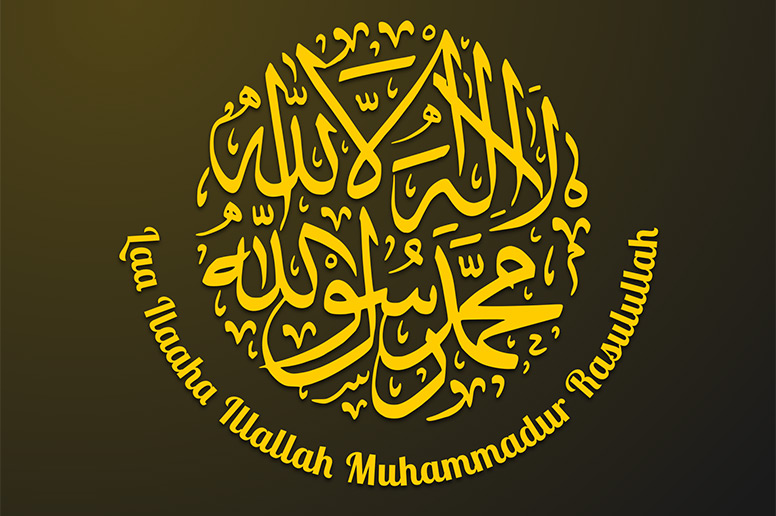
The Shahadah is the first of the five pillars of Islam, which are the fundamental practices that every Muslim is required to perform. The Shahadah is the declaration of faith, which states that there is no god but Allah and that the Prophet Muhammad (Peace be upon him) is his messenger.
The Shahadah is the most important declaration in Islam, and it serves as the foundation of the Islamic faith. By declaring the Shahadah, a person acknowledges that there is only one God and that the Prophet Muhammad (Peace be upon him) is his final prophet and messenger.
The declaration of the Shahadah is simple, yet powerful, and it is considered to be the first step towards becoming a Muslim. The Shahadah is recited by Muslims during their daily prayers, and it is also recited during other important occasions, such as weddings, funerals, and reversions to Islam.
The Shahadah is not just a statement of belief, but it also carries with it many important implications. By declaring the Shahadah, a person is committing to living their life according to the teachings of Islam, and to follow the example of the Prophet Muhammad (Peace be upon him).
In addition to the religious implications, the Shahadah also has social and political implications. It serves as a unifying force for Muslims around the world, and it helps to create a sense of community and brotherhood among Muslims of different ethnic and national backgrounds.
Overall, the Shahadah is the central aspect of the Islamic faith. It serves as a reminder of the fundamental beliefs and values that are at the core of the Islamic tradition, and it provides a sense of purpose and direction for Muslims in their daily lives.
Salah - Five daily prayers
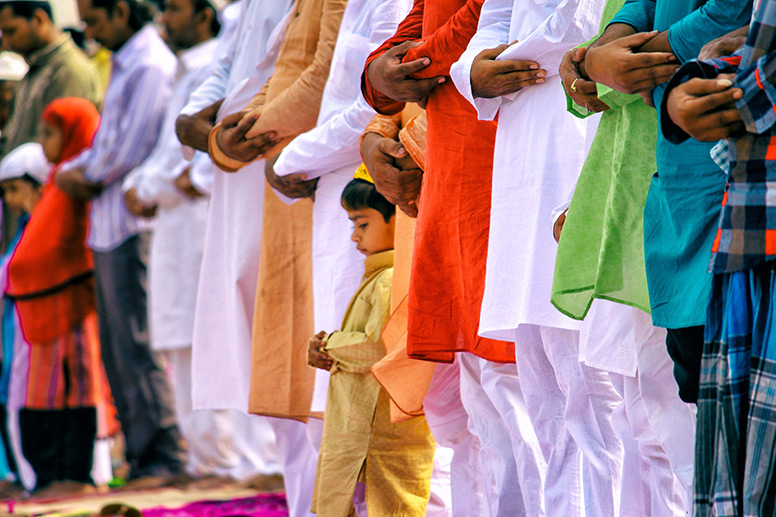
The second pillar is Salah or prayer. Muslims are required to pray five times a day, facing towards the Kaaba in Makkah. The prayers are conducted at specific times throughout the day and are accompanied by a series of physical movements and recitations from the Qur'an. The act of prayer is a reminder of the individual's connection with Allah and serves to reinforce their commitment to the faith.
The five daily prayers are Fajr, Dhuhr, Asr, Maghrib, and Isha. Fajr is performed before sunrise, Dhuhr is performed midday, Asr is performed in the mid-afternoon, Maghrib is performed at sunset, and Isha is performed at night. These specific times are based on the position of the sun and serve as a reminder to Muslims to stay connected to Allah throughout the day.
The prayer ritual itself consists of a series of movements and recitations, including standing, bowing, and prostrating. Each prayer includes the recitation of surahs, or chapters, from the Qur'an, as well as supplications (Du'a) and invocations. The prayer is typically performed in congregation at a mosque, but it can also be performed individually if necessary.
The act of prayer is seen as a means of achieving spiritual purity and strengthening one's relationship with Allah. It serves to remind the individual of their dependence on Allah and to promote a sense of humility and submission. Through the act of prayer, Muslims seek to gain Allah's blessings and maintain a connection with their faith throughout the day.
The performance of Salah is not only a personal obligation but also serves as a means of building community and promoting social cohesion. It is an opportunity for Muslims to come together and share in the act of worship, strengthening their sense of belonging and solidarity.
In summary, Salah is one of the most important obligations for Muslims and serves as a means of maintaining a constant connection with Allah. Through the act of prayer, Muslims seek to achieve spiritual purification, promote social cohesion, and strengthen their faith.
Zakah - Charity

Zakat is the third of the five pillars of Islam, which are the fundamental practices that every Muslim is required to perform. Zakat is an obligatory act of charity and is considered an essential component of a Muslim's faith and devotion to Allah.
The word "zakat" comes from the Arabic root word "zakaa", which means to purify, to grow, or to increase. In Islam, zakat is seen as a means of purifying one's wealth and possessions by giving a portion of it to those in need. It is also believed that by giving zakat, one's wealth and blessings are increased, both in this life and the hereafter.
Zakat is a compulsory payment that is made annually by Muslims who have reached a certain level of financial stability, known as the nisab. The nisab is determined by the value of gold or silver and is calculated based on the current market price. If a Muslim's wealth exceeds the nisab, they are required to give 2.5% of their wealth as zakat.
Zakat can be given to a variety of causes and recipients, including the poor, the needy, orphans, widows, travellers, and those in debt. It can also be given for the general welfare of the community, such as for the construction of mosques, schools, hospitals, and other public facilities.
The act of giving zakat is not only a religious obligation but also a social responsibility. It helps to ensure that the basic needs of the less fortunate members of society are met, and can also help to reduce inequality and promote social justice.
In addition to the benefits of purifying one's wealth and helping those in need, zakat also has spiritual benefits. It is believed that giving zakat can help strengthen one's faith, increase gratitude to Allah, and foster a sense of compassion and empathy towards others.
Overall, zakat is an important aspect of the Islamic faith and practice and serves as a reminder of the duty and responsibility that Muslims have to care for their fellow human beings and to strive for the betterment of society as a whole.
Sawm - Fasting

Sawm is the fourth of the five pillars of Islam, which are the fundamental practices that every Muslim is required to perform. Sawm refers to fasting, which involves abstaining from food, drink, and other physical needs from dawn until sunset during the month of Ramadan, the ninth month of the Islamic lunar calendar.
The practice of sawm is an act of worship and devotion to Allah. It is believed to help Muslims to develop self-discipline, self-control, and empathy towards those who are less fortunate. Fasting is also seen as a way to purify the body and the soul, and to increase one's spiritual connection with Allah.
During Ramadan, Muslims are required to abstain from all food and drink, including water, from dawn until sunset. The fast is broken at sunset with a meal known as iftar. The fast is resumed the following day at dawn, and the cycle continues for the entire month of Ramadan.
Fasting during Ramadan is obligatory for all adult Muslims who are physically able to do so. However, there are certain exemptions, such as for those who are travelling, pregnant or nursing, or who have health conditions that make fasting dangerous.
In addition to the physical act of fasting, Muslims are also encouraged to engage in additional acts of worship during Ramadan, such as reading the Qur'an, performing additional prayers, and giving charity to those in need.
The month of Ramadan culminates in the celebration of Eid al-Fitr, a joyous holiday that marks the end of the month-long fast. Muslims celebrate with feasts, gatherings with family and friends, and the exchange of gifts.
Overall, the practice of sawm is an important aspect of Islam. It serves as a reminder of the duty and responsibility that Muslims have to develop self-discipline and empathy towards others, and to strive for spiritual purification and connection with Allah.
Hajj - Pilgrimage to Makkah
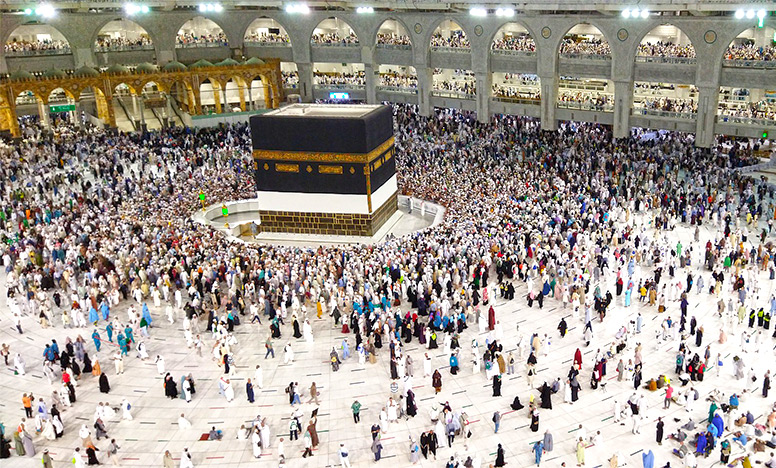
The Hajj takes place once every lunar year. The fifth and final pillar is the pilgrimage to Makkah, the holiest site in Islam. Each Muslim is expected to make the journey once in a lifetime, provided they are physically and financially able to do so. Known as the Hajj, it takes place during the last month of the Muslim calendar.
The pilgrimage is a time for Muslims to focus on their faith and renew their commitment to God. The journey begins with the donning of simple white garments, symbolizing purity and equality before God. The pilgrims then perform a series of rituals, including the circumambulation of the Kaaba, a cube-shaped structure located in the centre of the Grand Mosque in Makkah.
The Hajj is a profound spiritual experience, as Muslims from all over the world come together to worship God in one of the most sacred places on earth. It is a reminder that despite our differences in language, culture, and ethnicity, we are all equal before God.
In addition to the Five Pillars, there are other important aspects of Islamic practice, including the recitation of the Qur'an, which is considered the word of God, and the performance of good deeds, such as helping the needy, being kind to others, and avoiding harmful behaviour.
Overall, the Five Pillars of Islam serve as a framework for Muslim life, providing guidance and structure for believers as they strive to live in accordance with God's will. Through the profession of faith, prayer, charity, fasting, and pilgrimage, Muslims seek to deepen their connection with God and live a life of righteousness and service to others.
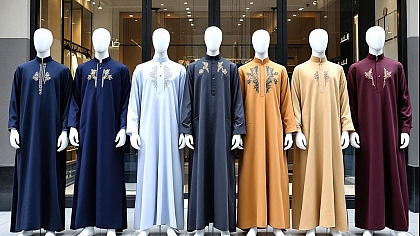

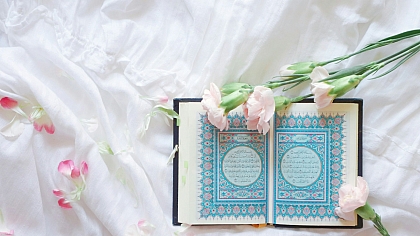
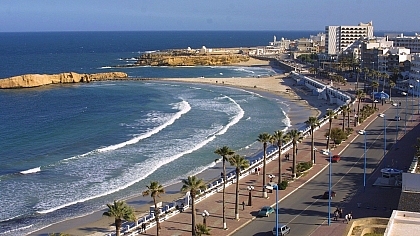
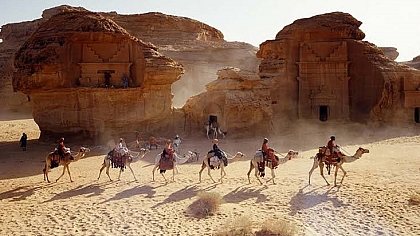
COMMENTS
Amazing enjoyed reading this and well written.
Amazing post, Thank you for sharing.